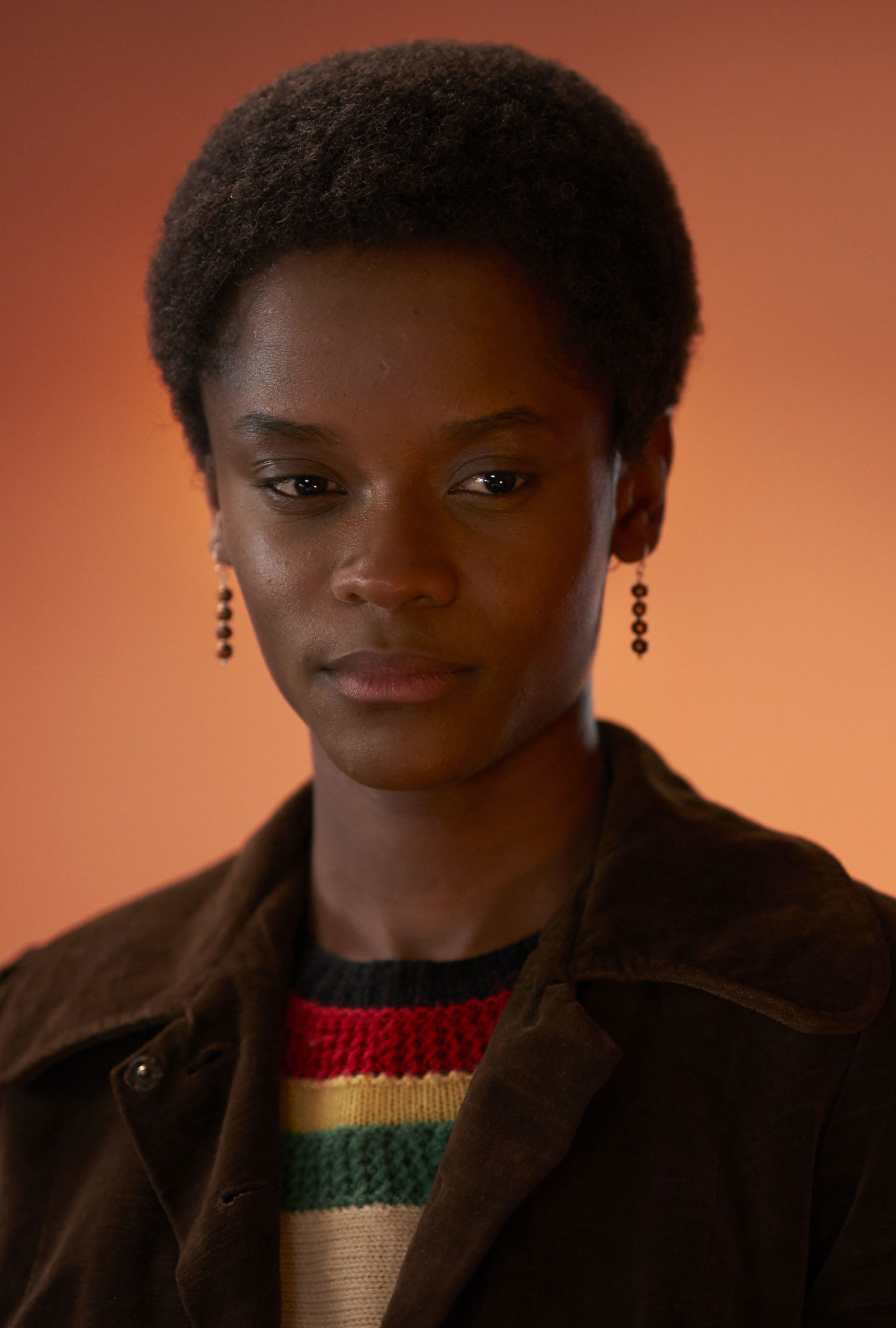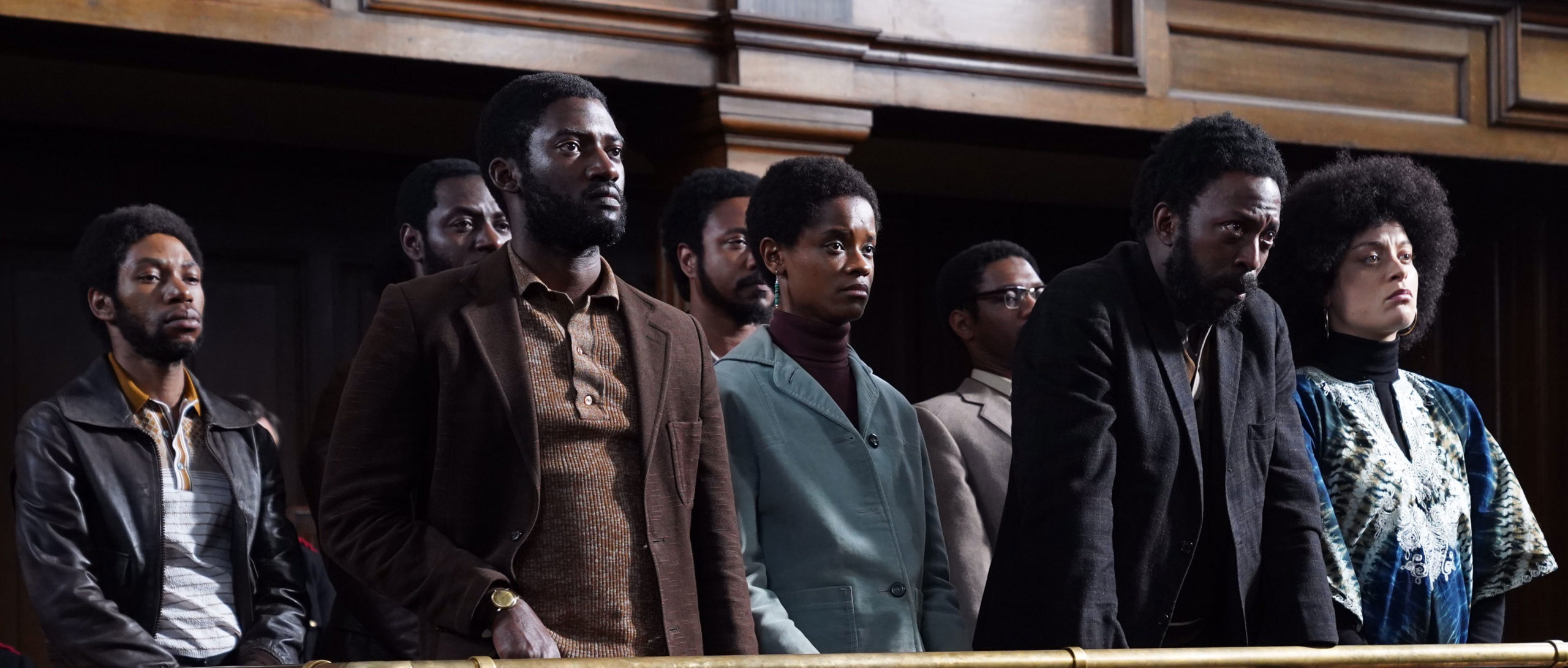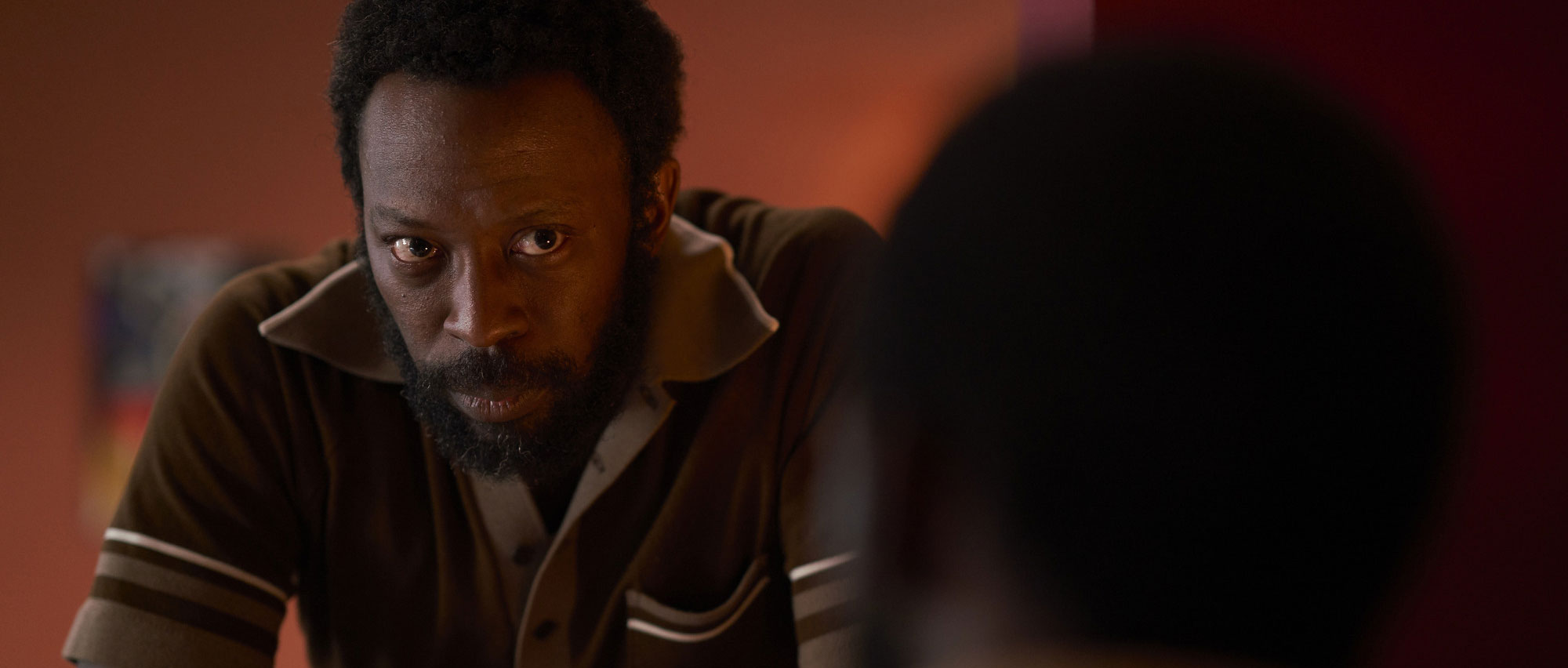
Director: Steve McQueen
Writer: Steve McQueen, Alastair Siddons
Cast: Shaun Parkes, Letitia Wright, Malachi Kirby, Rochenda Sandall, Sam Spruell, Jack Lowden, Alex Jennings
Producers: Michael Elliott, Anita Overland
Music: Mica Levi
Cinematography: Shabier Kirchner
Editor: Chris Dickens
Cert: 15 (TBC)
Running time: 128mins
Year: 2020

What’s the story: In 1970 nine black activists are arrested on trumped up charges of riot and affray and face lengthy prison sentences if found guilty.

What’s the verdict: Mangrove opened the 2020 London Film Festival, the second time a Steve McQueen has done so after 2018’s Widows. In 2019 the LFF launched with Armando Iannucci’s The Personal History of David Copperfield, that film’s gloriously colour blind casting an optimistic riposte to three years of little Britain Brexit-think.
Mangrove is a more serious film for a deadly serious year. A vital polemic for 2020’s Black Lives Matter flashpoint, it is a reminder of how unchecked authority victimises communities with impunity, and a necessary reminder that racist sentiments of the 1960s and ‘70s echo once more in the divisive rhetoric of populist leaders.
Beginning in London’s Notting Hill, plausibly recreated via CGI backdrops to depict a city embarking upon massive modern expansion, the first hour of McQueen’s film is based around the local Mangrove restaurant.
Mangrove owner Frank Crichlow (Parkes) has seen a previous club fall foul of dodgy dealings and is looking for a fresh start. But police constable Frank Pulley (Spruell) begins a campaign of harassment and intimidation against Frank and the Mangrove, backed up by coppers whose ugly racial language is a precursor to violence.
As the police brutality increases, the Mangrove becomes a centre point for activist meetings. Leading the charge is Darcus Howe, Malachi Kirby breathing fiery conviction into his portrayal of the legendary racial justice campaigner, and Black Panther’s Letitia Wright, here playing actual Black Panther Altheia Jones-Lecointe.
All involved understand the importance and relevancy of the story, delivering uniformly committed performances. Shaun Parkes lands Crichlow’s defiance and despair as years of harassment take their toll. Rochenda Sandall similarly dominates the screen as Barbara Beese, a campaigner haunted by a childhood in state care.
When a protest in front of the local police station is met with bully boy resistance by the Metropolitan police, including what resembles an early form of kettling to increase tension and panic, violence erupts. An incident which sees Crichlow, Howe, Jones-Lecointe, Beese and five others on trial at the Old Bailey accused of incitement to riot.

In these nuance-free times, it is unsurprising McQueen and co-writer Alastair Siddons deliver their politics with unsubtle, sledgehammer dialogue. Occasionally this means Mangrove’s characters hit pause on being people, becoming mouthpieces for the film to address systemic racism and its soul-crushing effects on non-white communities.
Yet this approach and the unapologetic anger surging through the film are justified: McQueen depicts a time that saw law enforcement arbitrarily detain and assault black men if an ace of spades was put down during a card game. Much like with his debut Hunger, the director lets his camera hang on the aftermath of violence. An oddly disquieting moment here observes a colander rolling back and forth on a kitchen floor following another police raid on the Mangrove.
The film’s second half focusses on the trial of the Mangrove Nine. Enter liberal lawyer Ian MacDonald (Dunkirk’s Lowden, initially resembling Austin Powers) who will guide the defendants through a gruelling 11-week trial and coach Howe and Jones-Lecointe, who elect to represent themselves.
In the fusty oak-lined chambers of the court, starkly contrasted against the vibrant décor of the Mangrove, McQueen takes his time unpicking the prosecution’s case for modern audiences. Including a set-piece sequence of Howe cross-examining the floundering Pulley.
The director risks testing patience by conveying how protracted the prosecution made the case. But come final summations, following a shocking moment of brutality as court orderlies assault Howe and Crichlow, the impact of this fight for justice lands with a wallop.
There are no “racist learns error of his ways” easy-outs on offer. However, Alex Jennings’ performance as Judge Edward Clarke subtly depicts an elite troubled at how the law of the land has been perverted on his watch.
Although made as one of five McQueen films in the BBC’s Small Axe series, Mangrove carries a cinematic sweep. Shabier Kirchner’s textured cinematography makes this one of 2020’s best shot movies, while the always-excellent Mica Levi contributes a score that dials up the urgency of McQueen’s visuals.
A raw, relevant and a necessary, though not easy, watch.
Rob Daniel
Twitter: rob_a_Daniel
iTunes Podcast: The Movie Robcast

Pingback: The Electric Shadows' Top 10 Movies of the Year is a feast of film